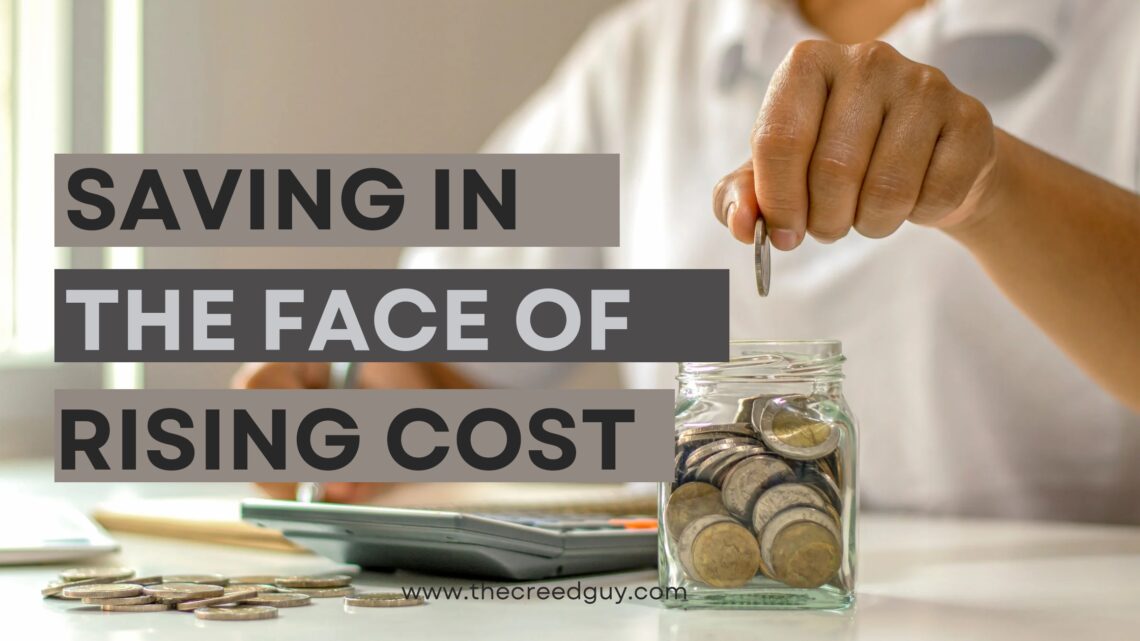
Saving in the Face of Rising Costs
How do you save money when you’re already stretched thin trying to make ends meet? You can invest in an emergency fund and reduce your monthly expenses, but how do you achieve that perfect balance of saving enough so that you won’t find yourself struggling when an unexpected expense crops up but still living comfortably enough to enjoy life? In order to determine the right balance, you need to know what you can afford to save and what your highest priorities are in terms of spending and investing.
Here are five tips to help you track your finances, reduce your expenses, and save money:
Maintain A Budget
Understanding your budget is key to ensuring you can save enough. Making a monthly budget helps you track how much you spend and, more importantly, how much you earn. If you want to save more, pay closer attention to where your money goes each month!
It’s not always easy to stick to a budget while also saving. That is why it is advantageous to be creative. There are numerous ways to save money without drastically altering your lifestyle. These can range from meal planning to buying used furniture rather than having a new one or other things. You can even use an app that analyzes your spending and make recommendations for savings opportunities!
Cut Down Expenses
Many people I know are always on a budget and ending in debt due to rising costs for everything from housing to transportation to food. Saving money today has become so challenging that most people no longer see it as an option and believe they are doomed to live in debt for the rest of their lives.
However, this is not the case! We may not be able to stop price increases, but we can control how much we spend on everyday items or large purchases like a house or car.
Pay Off Debt
Although it can be hard to focus on anything other than monthly bills, paying off debt is one of the best ways to save money in an increasingly expensive world. The more debt you pay off, the less interest you’ll have to fork over each month. Start small with a credit card balance that has a low rate and start making extra payments as soon as possible. It will help you manage your debt and avoid future dilemmas.
Lower Spending by Listening to Your Body
Stopping when you’re full is a simple way to save money. Instead of asking yourself, “Can I eat another bite?” ask yourself, “Am I hungry right now?” Making this choice will significantly reduce your food bill. Additionally, when you’re feeling full, go for a walk or do some other form of exercise; this will make you less likely to snack and should make it easier for you to find time for exercise if it’s something you struggle with regularly.
All these strategies together can help reduce your eating budget significantly. Another way to save money is by walking instead of driving and if not all the time, then at least during short distances when parking spots are scarce or expensive.
Keep Your Savings Simple
Save for a specific purpose. Set some attainable goals for yourself, such as saving for a house or an emergency fund, and give yourself a deadline to meet them. Setting deadlines for yourself will motivate you to complete your task by a specific date and keep you on track. The countdown to the completion of your savings will keep you motivated and on track! Divide large goals into smaller ones.
By breaking down large goals into small steps, you’ll feel more accomplished with each milestone reached; there’s also less pressure because it’s less likely that your entire savings plan will be wasted if one investment fails. Starting small with a manageable goal is critical because if saving isn’t enjoyable at first, it won’t become enjoyable over time. Prioritize cash flow needs over savings.
With the cost of everything going up, it is no wonder that saving money has become something of an art form and one that many people have perfected. You must be knowledgeable to save money. Otherwise, you’ll end up costing all your money on things you don’t need or can live without, leaving you with nothing to save.
You May Also Like

How You Can Budget in 10 Easy Steps?
January 30, 2021
Advantages and disadvantages of online classes
December 5, 2020

